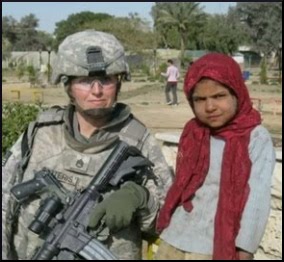
Like many entertainers, comedian Greg Proops is anti-war but pro-soldier, and believes that a lot of Americans see no choice other than enlistment, because “the economy is so awful and I think that the underclass has to join the service to get three squares and some health care.” And nowadays, the underclass includes just about everybody. Now, what about when the soldiering is over and the person has to reestablish a life at home?
The performer wants his audiences to realize that when veterans are discharged, in many cases their troubles are just beginning. They expect the experience they have gained and the service they have rendered to count for something. Instead, they often find themselves hungry, sick, disabled, mentally confused, emotionally troubled, and experiencing homelessness.
The boring, preachy part
When Proops records shows in front of live audiences, each episode includes a “boring preachy part” where he launches a tirade against whatever current news item has stirred up his indignation. Actually, these rants are far from dull, and in his June 3 podcast he took the opportunity to point out that female veterans are the fastest-growing segment of the American homeless population. Proops was alerted to this dismaying fact by the documentary, War Zone/Comfort Zone, which is now available on YouTube.
For Memorial Day, filmmaker Lizzie Warren described her experience in the pages of Salon:
I followed the story of two women — one of them a Gold Star mother — who fight to establish Connecticut’s first transitional, supportive house for women veterans. The women and their allies faced neighborhood opposition in several towns, and establishing a home with fifteen beds for women veterans and their children took more than four years.
Four years! To get 15 women and kids into a house! There are thousands and thousands of homeless veterans out there, and more arriving every day. This rate of progress is unacceptable. Warren notes that:
Women veterans face a dense constellation of issues: low wages, a lack of childcare and family housing options, inadequate gender-specific services at the Veterans Administration and Post Traumatic Stress Disorder from combat and Military Sexual Trauma.
A February New York Times article by Patricia Leigh Brown hit the same theme:
While male returnees become homeless largely because of substance abuse and mental illness, experts say that female veterans face those problems and more, including the search for family housing and an even harder time finding well-paying jobs.
We would add that a great number of vets suffer from the effects of PTSD, which is not the same as mental illness, being more preventable and more treatable. It is an enormous factor just the same.
At least 10% of the homeless veterans who are known to have spent nights in shelters are women. Transitional housing funded by Department of Veterans Affairs grants are mostly designed for single men, and 60% of them don’t allow children. Yet female veterans are much more likely than males to have custody of children.
California, here we come
Brown points out that a quarter of homeless women vets (and men too) are located in California. One out of every four homeless veterans lives there, yet as House the Homeless recently noted, California is a state whose bureaucracy has not yet caught up with the reporting requirements that were put in place to help the VA keep track of veteran suicides. This too is unacceptable.
Texas is another large state that is both rife with homeless veterans and behind in its statistical reporting. Journalists started noticing at least a couple of years ago that expanded services were needed, especially for women, especially for women with dependent children.
Alex Branch interviewed the director of Fort Worth’s nonprofit organization Grace After Fire. Kim Olson, a retired Air Force colonel, is tuned in to every nuance of the situation. Branch quotes Olson:
Almost all the facilities built to help homeless veterans are built around the male model. You don’t find them with child care, and playgrounds and common areas for women. We are going to need those kinds of places.
At the time when Branch did his research, the homeless veterans program administered by the VA in Fort Worth had housed 117 veterans, of which only 12 were women. He also took care to point out that although female veterans might be better educated than their civilian counterparts, their unemployment rate is twice as high because the skills they learned in the military do not carry over well into civilian life.
On this page, the Government Accountability Office offers a downloadable PDF document called “Actions Needed to Ensure Safe and Appropriate Housing” which addresses the needs of women vets.
Reactions?
Source: “No holidays or parades for homeless women veterans,” Salon, 05/27/13
Source: “Trauma Sets Female Veterans Adrift Back Home,” The New York Times, 02/28/13
Source: “Help hard to find for homeless female veterans,” Star-Telegram.com, 03/09/11
Image by Lizzie Warren.


